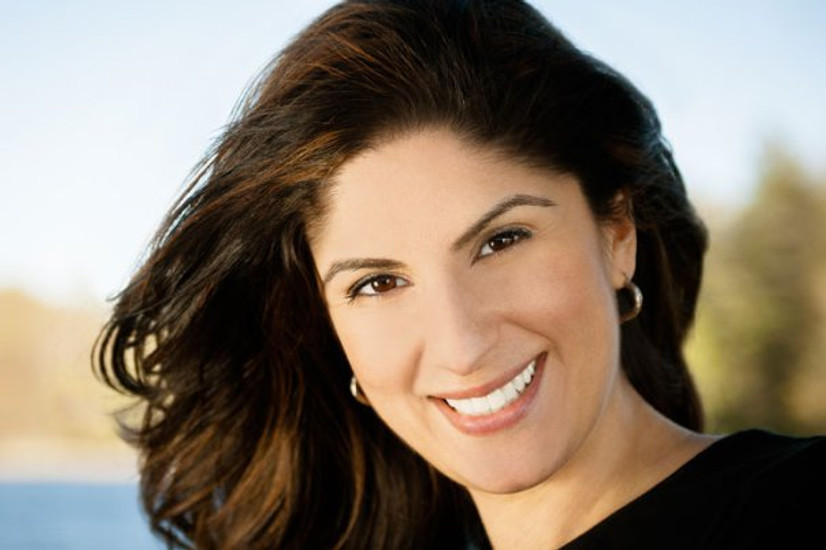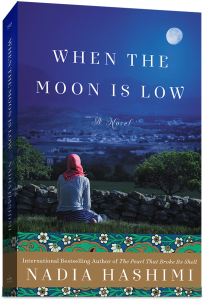The Power of Storytelling: Q&A with Nadia Hashimi
Posted by Elizabeth Lee on Jun 15, 2015
Bestselling author Nadia Hashimi shares insights on becoming an author and using fiction to discuss critical social issues. Learn about her top three picks for college Freshman Year Experience programs and more in this exclusive interview!
We first met Nadia Hashimi at the First Year Experience conference in Dallas this past February. Since then, Hashimi has quickly become an inspiration for many of us at BookPal. A pediatrician and mother of three (— four, if you count her family's African Grey parrot), she still manages to find time to pursue her passion of writing. Her debut novel, "The Pearl That Broke Its Shell," is an international bestseller, a 2014 Goodreads finalist in the categories of Debut Author and Fiction, and a preferred title in college Freshman Year Experience programs. We had the opportunity to interview this inspirational woman and discuss her life, her writing, and a few of her favorite reads.
Q: How did you launch your career after pediatric training?
Truthfully, as I was completing my medical education and pediatric training, I was not at all thinking about writing. The hours of residency are long and don’t leave much time for contemplating activities outside of medicine. My husband and I finished our medical training at the same time (albeit in very different fields and very different states). About a year after we were married, he encouraged me to make some time to write. He knew I loved reading and had dreamed of writing when I was much younger. He’s also a big believer in shooting for the stars and, with his support, I squeezed writing into my work week. In less than a year, I had completed my first manuscript and had to figure out what to do next. I got on the internet and searched for ‘how to get a book published.’ I found a literary agent who wanted to represent my work and in a matter of weeks, we had found a publisher. I’m still stunned to think of how it all came together and give my husband so much credit for seeing potential and giving me the room to make it happen.
Q: Why did you base your books off cultural background and heritage?
Growing up as an Afghan-American, I lived in a household with a rich Afghan culture. I also, with my parents, watched as the situation in Afghanistan deteriorated over the years and ultimately became one of the most infamously brutal places for a girl to be born. Among many other repressive and brutal decrees, the Taliban banned girls from schools. Since I grew up in a family that made education a priority, this was difficult to watch. I was very aware of just how lucky I was to have been born in the United States and to have escaped the ordeal of struggling under the misogynistic Taliban rule. It was a story I wanted to tell because I wanted the world to know not only about the injustices women and girls face in Afghanistan and other lands, but also about the resiliency and strength women demonstrate in battling and overcoming these challenges.
Q: Why is research and fact checking essential to fiction/non fiction writing? What is your research process like?
While writing fiction does give the writer creative license, for many topics a good amount of research is necessary. If a writer wants the imaginative parts of the story to be believable, they have to be grounded in a backdrop that makes sense. As I wrote "The Pearl That Broke Its Shell," I wanted to stay authentic to the events in Afghanistan’s history and landscape. Since my book centered on contemporary social issues, I wanted the narratives to be reflective of the reality some girls or women endure in the country. (It is not the story of all Afghans by any means, nor could any single book capture the story of an entire country). Since my dream was for the book to stir dialogue and interest in Afghanistan’s real problems, I had to stay close to actuality.
It’s also important to do research because readers are smart and savvy! When readers pick up a book, they have a certain expectation for authors to do their homework. It’s a valid expectation.
For my research, I talk to friends and family. I use historical texts and old black and white photographs. I also read news reports and speak with experts who have done work in the field. I also draw on my travels when painting geographic backdrops. It’s actually quite an enjoyable process and a good way to excuse myself on days when I don’t get a whole lot of words on the page.
Q: Why is it important to examine social issues in stories?
Writing a book is a big emotional and time commitment. For me to put that much energy into writing, I really need to feel passionately about the topic and these social issues are the ones that I am drawn to when I read the news. I also like to read books that I learn from and I’ve been very touched and humbled when readers let me know that after reading one of my books, they have gone on to read more about the political history of Afghanistan or the refugee camps of Europe. I believe in the power of fiction to convey some of these daunting topics and issues (like drug addiction, political corruption or human trafficking) in a format where it may be easier for the reader to learn, connect or empathize. Statistics can be numbing but human stories, even when they are represented by a fictional character, can be quite powerful.
Q: What would you recommend for college freshman reading programs?
"Opium Nation" by Fariba Nawa. She’s a bold journalist who followed the opium trade through Afghanistan. In her nonfiction book, she sheds light on how the trafficking of drugs and poppy eradication programs impact the lives of individuals, including young girls. It’s a great way to see how macro-scale issues affect people in their daily lives and force families into incredibly painful situations.
"A Long Way Gone" by Ishmael Beah. This is a heart-wrenching memoir of an unwilling child soldier trapped in the Sierra Leone conflict. Beah chronicles how his childhood was ripped away and replaced with a life replete with violence, drugs, manipulation and the traumatic loss of family members. It is not an easy read but an important one to understand the particularly horrific means by which wars are waged and that there is hope for recovery.
"Half of a Yellow Sun" by Chimamanda Ngozie Adichie. This is an evocative tale that, through a handful of vibrant and memorable characters, shows the reader how war and politics can change the course of an individual’s life. Set in the struggle for Biafran independence from Nigeria, the narrative demonstrates the gaps in how we learn and remember history and shows how we may incorrectly record political narratives as one dimensional stories. The rich backdrop is just as powerful and engaging as the individual characters grapple with the universalities of love, hope and identity.
Q: Who would you cast for Rahima, Shekiba, Fereiba and Saleem?
This is tough question. I have a hard time envisioning anyone I am familiar with playing the role of any of these characters. That being said, I’d be honored to have these imaginary figures brought to life by any actor/actress. I think it would be particularly rewarding to have these characters played by Afghans because the arts are so in need of encouragement and growth in Afghanistan.
About her upcoming book, When the Moon is Low:
Hashimi will be publishing her second novel, "When the Moon is Low," in a few weeks (July 21, 2015). Another powerful novel on family, gender, and Afghan culture, "When the Moon is Low" chronicles an Afghan woman's odyssey to save her family as the Taliban rises to power. Forced to flee her country, Fereiba embarks on a journey with her three children. Their only hope of survival is to cross Europe and reach her sister's family in England. Exhausted and brokenhearted but undefeated and resilient, Fereiba manages to smuggle the family as far as Greece. But in a busy market square, their fate takes a frightening turn: Saleem, her teenage son, becomes separated from the rest of the family.
Preorder this book in bulk for your college common reading program and Freshman Year Experience program from BookPal. With our specialized services — including customization options, dedicated account management, and custom fulfillment options — BookPal makes buying books wholesale simple for colleges and universities across the country. Browse our online catalog to find more classroom novel sets, paperbacks in bulk, and other Freshman Reads. Check out our Common Reads & the Freshman Year Experience infographic for title recommendations and program suggestions, or contact us for more information!



